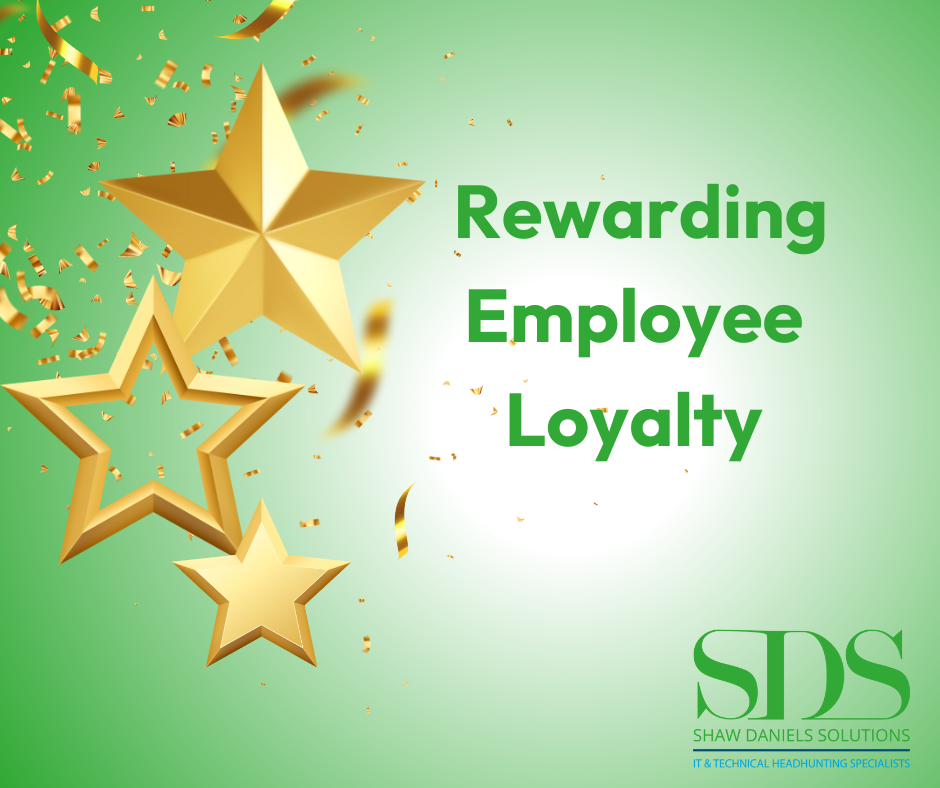
Rewarding employee loyalty is crucial for maintaining a motivated and dedicated workforce. Here are some ideas for recognising and appreciating loyal employees:
- Length of Service Awards: Recognise employees who have been with the company for a significant period of time. Offer personalised gifts, plaques, or certificates to show appreciation for their loyalty.
- Employee Appreciation Events: Organise special events or outings to celebrate loyal employees. This could include team-building activities, meals, or even company-sponsored trips.
- Professional Development Opportunities: Offer opportunities for career growth and skill development to employees who have shown loyalty. This can be in the form of mentorship programs, training sessions, or financial support for continuing education.
- Flexible Work Arrangements: Show gratitude for loyal employees by offering flexible work arrangements, such as remote work options or flexible hours. This demonstrates trust and allows employees to better balance their personal and professional lives.
- Employee Recognition Programs: Implement a formal recognition program that acknowledges and rewards employee loyalty. This can include monthly or quarterly awards, public recognition, or bonuses based on tenure.
- Special Perks and Benefits: Provide exclusive perks or benefits to long-term employees, such as additional vacation days, gym memberships, or discounts on company products or services.
- Open Communication and Feedback: Foster a culture of open communication and regular feedback with loyal employees. Give them a platform to voice their opinions and suggestions, and actively listen to their feedback.
The key is to tailor rewards and recognition to each individual employee, taking into account their preferences and interests. By showing appreciation for their loyalty, you can create a positive work environment and strengthen your relationship with your employees.
Rewarding employee loyalty has several positive effects on both the employees and the organisation as a whole. Here are some of the key benefits:
- Increased Motivation and Engagement: Recognising and rewarding employee loyalty boosts motivation and engagement levels. When employees feel valued and appreciated, they are more likely to be committed to their work and go above and beyond in their roles.
- Improved Retention Rates: Rewarding loyalty can help retain top talent within the organisation. Employees who feel recognised and appreciated are less likely to seek opportunities elsewhere, reducing turnover and the associated costs of recruitment and training.
- Enhanced Employee Satisfaction: Loyalty rewards contribute to overall employee satisfaction. Knowing that their commitment and dedication are acknowledged and rewarded creates a sense of fulfilment and job satisfaction among employees.
- Strengthened Company Culture: Rewarding loyalty helps foster a positive and supportive company culture. When employees see that loyalty is valued and recognised, it encourages a sense of camaraderie and loyalty among colleagues, leading to a more cohesive and collaborative work environment.
- Increased Productivity: Rewards for loyalty can serve as an incentive for employees to perform at their best. By linking rewards to loyalty, employees are motivated to consistently deliver high-quality work and strive for excellence.
- Positive Public Image: Recognising and rewarding employee loyalty can also enhance the organisation’s public image. When employees are happy and loyal, they are more likely to speak positively about the company, creating a favourable impression among prospective employees and customers.
- Improved Customer Satisfaction: Loyal employees who are rewarded for their commitment are more likely to provide excellent customer service. This, in turn, leads to improved customer satisfaction and loyalty, contributing to the overall success of the organisation.
Rewarding employee loyalty has numerous positive impacts, including increased motivation, improved retention rates, enhanced employee satisfaction, strengthened company culture, increased productivity, positive public image, and improved customer satisfaction.
However, while rewarding employee loyalty has numerous benefits, there are also some potential negatives to consider:
- Potential for Inequity: If loyalty rewards are not distributed fairly or based on objective criteria, it can lead to feelings of favouritism and inequality among employees. This can create a negative work environment and damage morale.
- Cost Considerations: Implementing loyalty reward programs can be expensive, especially if they involve financial incentives such as bonuses or raises. Organisations need to carefully assess the costs and benefits of such programs to ensure they are sustainable and align with their budget.
- Complacency and Stagnation: In some cases, rewarding loyalty may unintentionally reinforce complacency and discourage employees from seeking new challenges or opportunities for growth. This can hinder innovation and personal development within the organisation.
- Unrealistic Expectations: Employees who have been rewarded for their loyalty may develop high expectations for continued rewards in the future. If these expectations are not met, it can lead to disappointment and decreased motivation.
- Limited Focus on Performance: Loyalty rewards may shift the focus away from performance-based recognition and rewards. This can undermine a merit-based culture and potentially demotivate high-performing employees who may feel their efforts are not adequately recognised or rewarded.
- Reluctance to Leave: While employee loyalty is generally seen as a positive attribute, it can also lead to employees staying in roles or organisations that may not be the best fit for them. This can result in reduced job satisfaction and hinder career progression.
- Changing Workforce Dynamics: In today’s dynamic work environment, loyalty to a single employer is becoming less common. Younger generations tend to value career mobility and multiple experiences. Overemphasizing loyalty rewards may not align with the changing expectations of the workforce.
It’s important for organisations to carefully consider these potential negatives and tailor their loyalty reward programs to mitigate any negative impacts while maximizing the positive outcomes.

